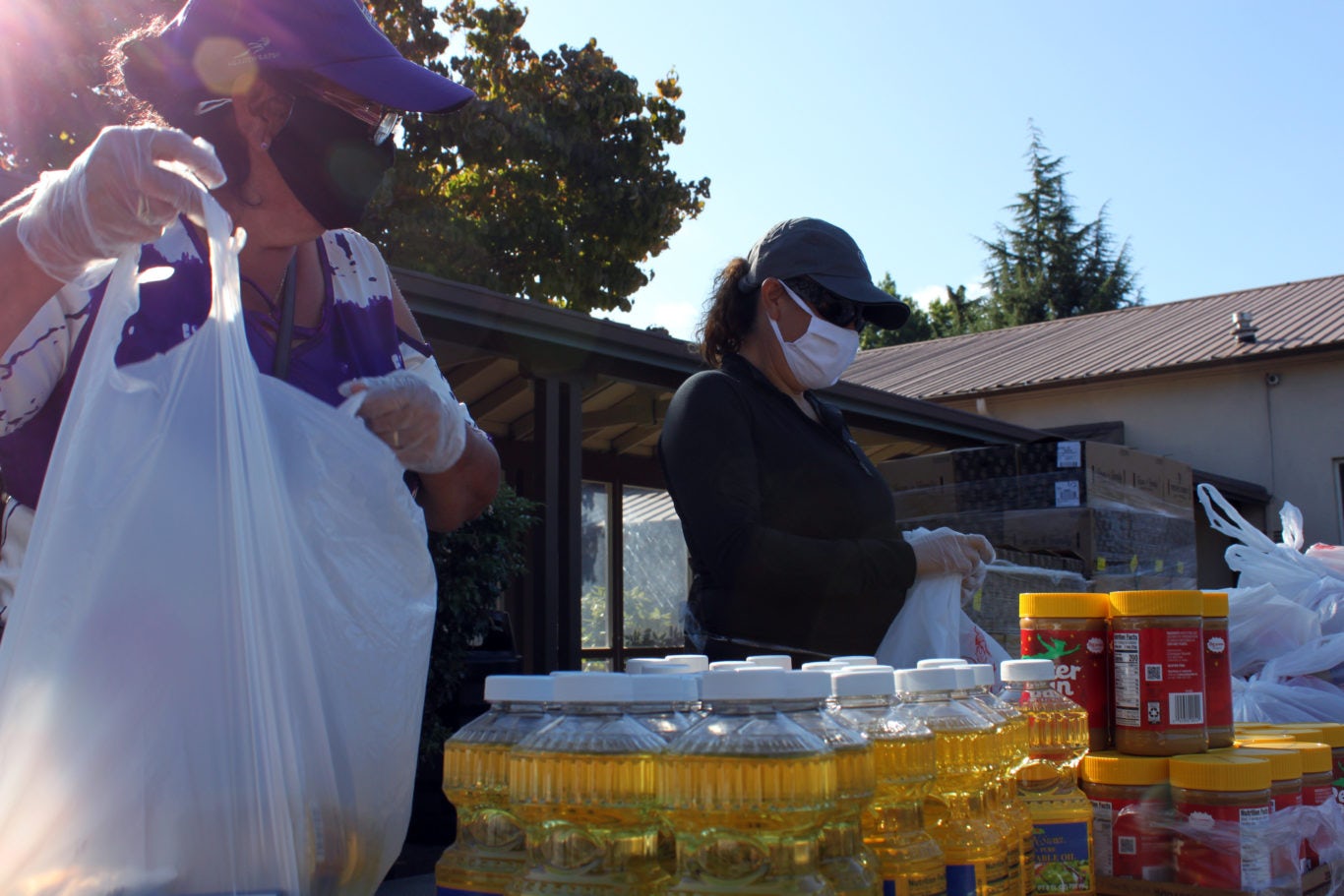Each year, the U.S. observes and celebrates Latine/Hispanic Heritage Month from September 15 to October 15 in honor of the histories, cultures and contributions of Latine (sometimes identified as Latino/a/@/x) Americans. Additionally, September 15 holds historical significance as it marks the independence days of Costa Rica, El Salvador, Guatemala, Honduras and Nicaragua. Mexico and Chile also observe their independence days on neighboring dates – September 16 and September 18. As we commemorate this month with joy-filled festivities, we remind our community to center the experiences and challenges that Hispanic (Spanish-speaking) and Latine people continue to face while maintaining hope that we can create a world where these communities are free from violence and injustice.
In the U.S., Hispanic and Latine people are often thought of and categorized as a single group, further perpetuating erasure of such diverse peoples, cultures, traditions and experiences. At Oregon Food Bank, we recognize that, if anything, the commonality that these communities share is U.S. and Western occupation over their lands and people, causing long-lasting effects from disproportionate rates of hunger, poverty and forced migration.
A survey conducted by Pew Research last year found that 58% of undocumented Latines say they or someone in their household has experienced unemployment or wage loss since February 2020 compared to 45% of naturalized U.S. citizen immigrants. Facing compounding adversities, Latines in the U.S. also face inordinate exposure to and illness from COVID-19. Often working in essential, front-line positions, research shows that a majority (71%) cannot work from home. Immigrants and People of Color – Latines in particular – have borne the brunt of this health crisis, facing disproportionate health and economic impacts as a result.
